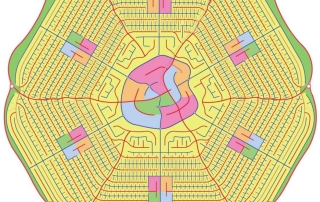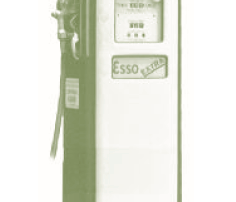Can We Have Sustainable Transportation without Making People Drive Less or Giving up Suburban Living?
Mark Delucchi
City planners, transportation analysts, and policymakers have struggled to reconcile the promises and problems created by suburban land use and automobiles. On the one hand, automobile use and suburban living are widely and highly valued; as people become wealthier, they tend to buy cars and live in bigger homes farther away from central cities. Many urban planners, however, blame automobiles and automobile-driven sprawl for a wide range of problems, including climate change, road fatalities and injuries, rising traffic congestion, ugly urban form, oil dependency, and increasing social fragmentation. Most approaches to these problems focus on curtailing automobile use and its impacts. Outside of densely populated cities, however, it is hard to reduce personal automobile use.


